Home health agencies operate in one of the most heavily regulated healthcare sectors, where a single misstep can result in devastating financial penalties and compromised patient care.
Recent data shows that compliance violations have increased by 23% over the past three years, with documentation errors accounting for nearly 40% of all citations.
What makes addressing common compliance mistakes in home health particularly complex is the decentralized nature of care delivery.
Unlike hospitals where oversight is constant, home health professionals work independently in patients’ homes, making real-time supervision nearly impossible. This independence creates unique compliance risks that require proactive educational strategies to address effectively.
The most critical areas where mistakes happen
Home health agencies must navigate multiple overlapping regulatory frameworks simultaneously. Medicare Conditions of Participation, state licensing requirements, OSHA standards, and quality reporting measures each have distinct documentation requirements, timelines, and penalties for non-compliance.
Documentation remains the most problematic area for most agencies. Clinical records serve as the foundation for regulatory compliance, quality measurement, and reimbursement, yet they’re often treated as an afterthought in busy workflows.
When nurses and therapists focus primarily on patient care, documentation becomes rushed, incomplete, or delayed, creating vulnerabilities that surveyors inevitably discover.
Staffing and supervision requirements present another significant challenge. Agencies must maintain appropriate ratios while ensuring all clinical staff receive adequate supervision and continuing education. The healthcare worker shortage has made this balance increasingly difficult, leading many agencies to take shortcuts that compromise compliance.
Patient safety protocols, including infection control and workplace violence prevention, require consistent implementation across diverse home environments. Staff must adapt safety protocols to varying conditions while maintaining the same standards expected in controlled clinical settings.
Documentation disasters that cost agencies thousands
Clinical documentation errors represent the largest category of compliance violations in home health. These mistakes often stem from fundamental misunderstandings about adequate documentation rather than intentional negligence. Time pressures compound these issues, creating perfect conditions for documentation failures.
Incomplete care plans plague many agencies, particularly when interdisciplinary team coordination breaks down. A physical therapist might update their portion without communicating changes to nursing, resulting in conflicting approaches and incomplete documentation. These gaps become obvious during surveys and trigger broader investigations.
Missing physician orders and delayed plan of care certifications create immediate compliance risks. When staff provide services without current physician orders, they violate fundamental Medicare requirements that result in claim denials and regulatory sanctions. The challenge lies in coordinating with busy physician practices that don’t prioritize home health documentation.
Progress notes lacking clinical justification for continued services represent another common pitfall. Many clinicians focus on routine activities rather than documenting meaningful changes in patient condition that justify ongoing skilled services. This satisfies immediate needs but fails to meet regulatory requirements for demonstrating medical necessity.
| Common documentation errors | Frequency | Primary prevention strategy |
| Incomplete care plans | 35% | Structured team coordination |
| Missing physician orders | 28% | Automated tracking systems |
| Inadequate progress notes | 23% | Clinical documentation training |
| Late certifications | 14% | Workflow optimization |
Staffing violations that catch agencies off guard
Staffing compliance extends beyond having enough people for patient care. Agencies must ensure all clinical staff maintain current licenses, complete required education, and receive appropriate supervision based on their experience level. The complexity often catches agencies unprepared during surveys.
Supervision ratios for new graduates create particular challenges. Many agencies understand supervision needs but fail to document it adequately or adjust intensity based on competency levels. When newly licensed nurses work independently too soon, patient care issues often result, triggering broader compliance investigations.
Continuing education requirements vary by state and discipline, making comprehensive tracking difficult. A nurse might complete required nursing education but miss home health-specific training, creating gaps that become apparent during detailed record reviews.
Background checks and credentialing must be completed before staff begin patient care, yet staffing urgencies sometimes lead agencies to allow work while verifications are pending. These shortcuts create immediate violations and liability issues that far outweigh temporary staffing relief.

How strategic education programs transform compliance
The most effective approach to preventing common compliance mistakes in home health and how education can prevent them involves comprehensive programs that address both technical requirements and cultural attitudes. Rather than treating compliance as a separate administrative function, successful agencies integrate education into all operational aspects.
Competency-based training ensures staff demonstrate actual ability to perform required tasks rather than simply attending sessions. These programs combine education with practical application and ongoing assessment, creating foundations for sustained improvement.
When nurses can demonstrate proper documentation in real scenarios, they’re more likely to maintain standards in independent practice.
Regular case study sessions help staff understand real-world implications of compliance requirements. By reviewing actual survey findings and consequences, staff develop deeper appreciation for why procedures exist and how shortcuts create serious problems. These discussions provide opportunities to address questions before issues arise.
Just-in-time education systems deliver relevant information when staff need it most. Rather than overwhelming new employees with comprehensive training on every scenario, these systems provide targeted education based on actual assignments and identified needs. This improves retention and practical application of compliance knowledge.
The integration of psycho-social interventions into compliance education helps address human factors that contribute to failures, creating more comprehensive improvement strategies.
Measuring education program impact
Effective measurement requires multiple indicators assessing both immediate learning and long-term behavior change. Comprehensive systems track knowledge acquisition, skill demonstration, and actual clinical performance over time.
Chart review data provides objective evidence of documentation improvement and compliance performance. By tracking error rates and quality indicators before and after training, agencies can demonstrate tangible education impact and identify areas needing additional support.
Survey performance offers the ultimate effectiveness measure. Agencies investing in comprehensive education typically see improved scores, reduced citations, and shorter survey processes. However, improvements may take time, requiring patience and sustained commitment.
Staff feedback ensures programs meet participant needs while achieving compliance objectives. When staff find training relevant and supportive, they’re more likely to apply learning and participate in ongoing initiatives.
Agencies seeking to improve their care delivery and compliance can benefit from external expertise to supplement internal capabilities.
Take control of your compliance before it controls you
Don’t let compliance mistakes compromise your agency’s reputation, finances, or patient care quality. The home health industry’s regulatory complexity demands systematic, evidence-based education programs that create lasting behavioral change and organizational capability.
Intuitivels specializes in developing comprehensive compliance education solutions tailored specifically for home health agencies. Our proven methodologies combine regulatory expertise with practical implementation experience to deliver measurable improvements in documentation quality, staff performance, and survey outcomes.

